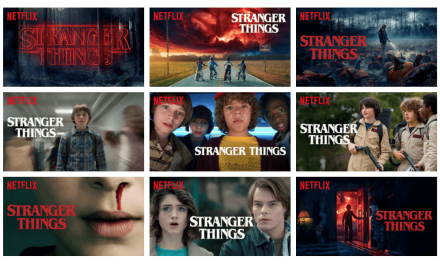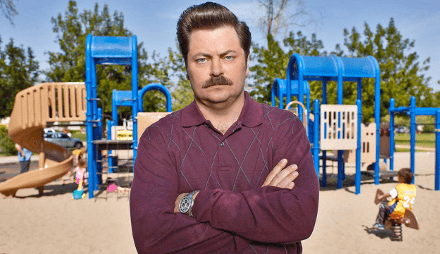One of the pleasures of researching the history of UKTV drama for the ‘Spaces of Television: production, site and style’ AHRC project is finding yet more evidence of the non-teleological and non-linear nature of TV history. What has provoked this thought at this time is the coincidence of working on TV productions of stage plays in the studio (especially the BBC’s ‘Performance’ strand of 1998) and viewing live theatre performances broadcast on Sky Arts. One of the striking things about Sky Arts is the way in which it has sharpened its elbows and sought to claim territory once occupied by the BBC – live performance from studio and theatre spaces and, more broadly, the kind of television drama that might be linked, in general terms, to the so-called ‘Golden Age’ of UK drama .
Technologically, formally and aesthetically we are a long way from the ‘Golden Age’, of course, (and the caution about the term signalled by apostrophes is important) but Sky Arts has evoked it in much of its drama commissioning. Leaving aside the question of live performance for a moment, one of the Channel’s most high profile series has been Playhouse Presents, the second series of which will be broadcast from April this year. The first series of 11 30-minute dramas, which ran from April to June 2012, included ‘plays’ by amongst others Will Self, Jim Cartwright and Sandi Toksvig (also the executive producer for much of Sky Arts live drama offerings). A short series (4 half-hour episodes), A Young Doctor’s Notebook, based on short stories by Mikhail Bulgakov, and starring Daniel Radcliffe and John Hamm, was also broadcast under the Playhouse Presents banner. The second series of 9 one-off dramas and a series of 6 related comedy dramas is scheduled to run from April to July 2-13.
The title alone references earlier, ground-breaking anthology series from the late 1950s to the 1980s such as ATV’s Armchair Theatre and the BBC’s Wednesday Play and Play for Today (although the half-hour format suggests other series, such as Thirty Minute Theatre). The use of the word ‘play’, which unashamedly references the theatre, catches the eye in a context where TV drama has either sought to align itself with cinema or strike out to find an aesthetic of its own. Equally surprising is the revival of the notion of the anthology series, once a familiar feature on the broadcasting landscape: one-off dramas with different writers and casts but (some) shared production personnel and directors, grouped together to create an identity in the schedule. Like the Golden Age series already mentioned, Playhouse Presents offers a platform of new writing, often by writers who are new to the medium or known in other contexts. Novelist Will Self (from Series One) and playwright Simon Stephens (Series 2) are notable example of the former, whilst actors Idris Elba, David Thewlis and Marc Warren all contribute scripts to Series 2. These actors are also given directing opportunities, along with the current Doctor Who, Matt Smith. Playhouse Presents also promotes its brand with well-known and highly-regarded actors, signalling that performance and text will be important. Series One included performances by Stephen Fry, Emma Thompson, Gina Mckee, David Tennant, Brenda Blethyn, Alison Steadman and – for the first time in an acting role – Tom Jones; Series Two will showcase the talents of, amongst others, Kylie Minogue, Matthew Horne, Kathy Burke, David Harewood and Steven Mackintosh. In this way, Playhouse Presents has positioned itself as the inheritor of the culture and values of the BBC in the era of Sydney Newman, creating spaces for experiment and new opportunities for talented people to extend their reach. Those so favoured have been fulsome in their gratitude: Elba commented that Playhouse Presents had given him a ‘tremendous opportunity’ and Warren said working on the series had given him ‘one of the most magical experiences of my life’.
The deliberate referencing of historical drama is safer than confronting the contemporary broadcasting situation head-on, of course (although, elsewhere in its operations, Sky has flexed its acquisitive muscles through its alliance with the byword in current quality television, HBO). However, the relationship between Playhouse Presents and, say, Armchair Theatre or the Wednesday Play is not straightforward. With a couple of exceptions (to which I will return), Playhouse Presents is not confined to the studio, as many Wednesday Plays were, and is shot, predominantly, with the technology, genres and aesthetic languages of contemporary television drama, with no echoes of the theatre signalled by its title. Where experiments do occur, they are in the area of story-telling and visual effect – for example, the self-conscious narrative queasiness of Will Self’s The Minor Character.
The emphasis on small-cast, character-driven and actor-led narratives, as distinct from plot, fast-paced editing and spectacle, marks these dramas out amongst a great deal of contemporary television. A common narrative pattern – perhaps a function of the 30 minute format – is a focus on a single figure, rarely more than two or three, who fill the frame and whose performances constitute a main source of pleasure for the viewer: Emma Thompson’s Queen Elizabeth II (in Walking the Dogs , a speculative account of the real-life invasion by Michael Fagan of the Queen’s bedroom in 1982); Douglas Henshall’s protector-assassin in The Snipist (set in a fictional near future); David Tennant’s unreliable and unlikeable narrator in The Minor Character (a writer reflects on his relationships with his friends).
As these examples indicate, the subject matter and generic tone of Playhouse Presents dramas varies greatly (only one, Psychobitches, which stars comic actors playing famous women from history receiving therapy, is overtly a comedy, and is set in a therapists consulting room). But this was also the case with The Wednesday Play: the series became known for its gritty, contemporary and working class social realism, yet it actually contained plays on a wide range of themes and within different forms and genres – not every Wednesday Play was a Cathy Come Home. The Playhouse Presents play that most resembles archetypal studio drama is Jim Cartwight’s King of the Teds, which casts Tom Jones as Ron, a newly-unemployed factory worker married to Tina (Alison Steadman), whose first love, Nina (Brenda Blethyn) unexpectedly comes out of the past. The tussle between the women for Ron’s affections is resolved in Tina’s favour – she has always been his true love – and the play ends with Ron serenading her in their bedroom. Set almost entirely in the living-room of Ron and Tina’s terraced house, King of the Teds deals with the ‘everyday’ of a working class situation, explored through the careful interplay of emotions in a confined domestic space. Like the best social realist dramas of both stage and small screen, the living-room functions as a trap, as Raymond Williams once reminded us, determining and determined by the characters whose dramas are played out within it.
Sky Arts’ forays into live performance more obviously references ‘theatre’ and the early years of television drama, though not always accurately. Its Theatre Live series of 6 live dramas, rehearsed in the Orange Tree Theatre in Richmond and broadcast from a studio in West London, ran in July and August 2009, and included plays by poet Jackie Kay and novelists Kate Mosse and Michael Dobbs.
Sandy Toksvig, who was executive producer for the series and conducted live interviews with the actors and writers after the plays ended, directly referenced early TV in press releases, largely for the sense of danger it created: ‘For the first quarter-century of British television, drama was live. Live drama has a rawness and immediacy in which anything can and did happen’. Elsewhere, the references to earlier television were wildly wrong: the same Guardian article suggested that ‘Sky claims that this will be the first time live, specially commissioned plays have been aired on UK television since Play for Today finished airing on the BBC in 1984’. Oh dear: live television drama had stopped being part of the schedules a very long time before 1984, of course, and some time before Play for Today began broadcasting in 1969 (apart from one-off ‘events’ such as single episodes of The Bill and Eastenders which do not count for these purposes). Invoking television history in this way is simply a spectacularly inappropriate and opportunistic attempt to lasso the kudos that such parallels bring and tie it to their programming. Live drama either from, or as if from, the theatre belonged to a much earlier period of television, when productions used to be broadcast live from the West End. Sky Arts has entered this territory as well, for example broadcasting live Shakespeare from the Globe Theatre in London in the summer of 2012 (although this feels much more like the National Theatre Live screenings that you can find in your local multiplex than it does those West End shows).
One should not be too churlish about Sky Art’s use of television history, perhaps. Certainly, these forays into live drama and the revival of the single play have been popular with television and theatre practitioners in the UK, who, one would guess, the broadcaster is anxious to have on its side. Follow-up series to Theatre Live, for example, have drawn playwrights such as Mark Ravenhill, Eve Ensler, Frank McGuiness and Rebecca Lenkiewicz to television. And the drama that is being produced as a result is different in kind from much else that is to be found in the schedules – although if that is enough reason to take Rupert Murdoch’s shilling is a moot point.
There is one way in which Sky Arts’ dramas differs wildly from those of Play for Today and its like: audiences for Sky Arts programmes typically gain little more than 0.1% of available viewers – Wednesday Plays and Plays for Today were watched by millions (Cathy Come Home had an audience of over 12 million). I suspect that this is not the point for Sky Arts, which is much more interested in a particular demographic – but is certainly was the point for Sydney Newman, David Rose, Tony Garnett and all the others who opened the doors to new forms of television in the 1960s.
Stephen Lacey is Professor of Drama, Film and Television in the Cardiff School of Creative and Cultural Industries at the University of Glamorgan. He has published widely on post-war British theatre and television drama, and is the author of British Realist Theatre: The New Wave in its Context 1956-65 (Routledge 1995) and Tony Garnett (MUP 2007). He is also co-editor of Popular Television Drama: Critical Perspectives (MUP 2005) and British Television Drama: Past, Present and Future (Palgrave 2000).





